25 natural ways to boost your immune system
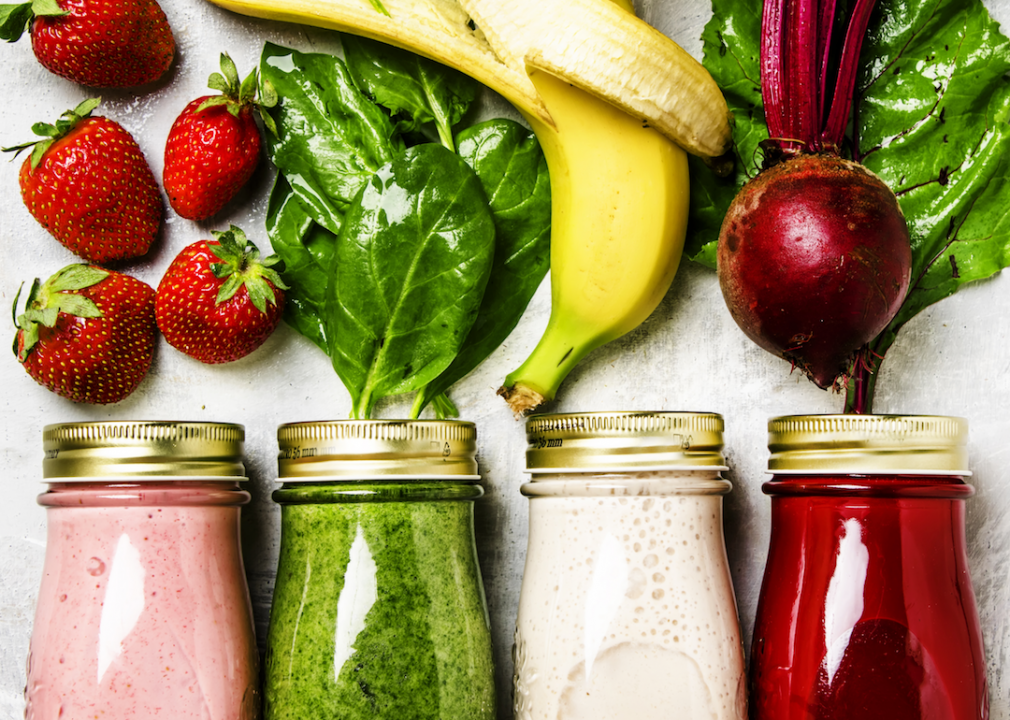
5PH // Shutterstock
25 natural ways to boost your immune system
Most Americans understand the importance of maintaining a healthy regimen that includes a nutrient-dense diet, exercise at least several times a week, and self-care activities to de-stress. But in addition to that being good for a healthy weight and clear skin, and preventative for long-term health issues from cancer to diabetes, taking care of ourselves has the added benefit of boosting our immune systems to ward off everything from the common cold to the flu—or at least help our bodies to fight illness when we get sick.
Our immune systems help to keep bacteria, toxins, and viruses at bay, and prevent us from getting sick from the diseases they cause. Immune systems further help remove unhealthy or infectious cells from our bodies and regulate the body’s responses to otherwise harmless activity (whether food or our own bodies).
There’s no silver bullet for preventing or fighting disease, but it’s as good a time as any to discuss natural ways to keep our immune systems high-functioning.
To that end, Stacker scoured health studies, expert medical advice, nutrition facts, and recent headlines to deliver 25 natural ways to boost your immune system. The gallery includes interesting facts—did you know your body can’t produce vitamin C on its own?—and guidelines for optimizing your water intake and figuring out which foods function as the strongest antioxidants. Keep reading to learn more about 25 ways to naturally boost your immune system.
You may also like: States where the most people live in maternal health care deserts
![]()

Alina Kruk // Shutterstock
Drink more water
The most well-known, surefire way to boost your immune system and overall health is drinking plenty of water. Sufficient hydration (best indicated by, at minimum, light yellow urine) means blood is oxygenated, toxins will be flushed, and vital organs and muscles will function their best.

Boiarkina Marina // Shutterstock
Supplement with vitamin C
It’s essential to supplement a diet with vitamin C since the body cannot make it. Vital to tissue growth and repair, heart health, bones, teeth, and cartilage, vitamin C can be found in fruits and vegetables (oranges, broccoli, strawberries) or supplement form.
Beyond its capacity to battle viruses, it’s been found to have benefits in combating chronic diseases.
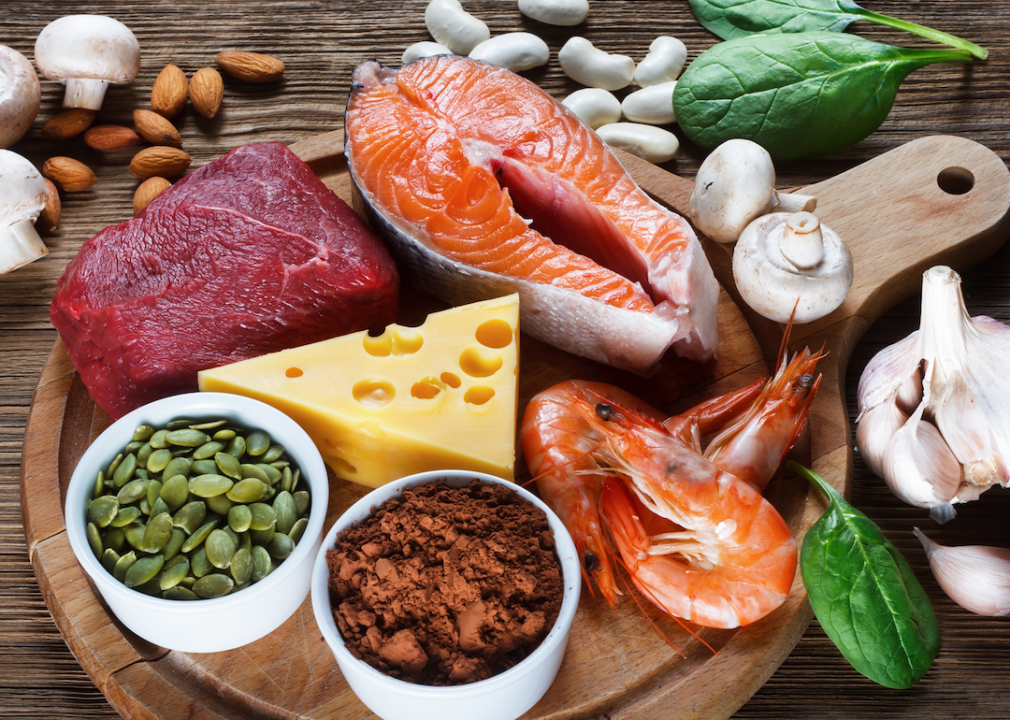
Evan Lorne // Shutterstock
Incorporate zinc
This mineral plays a very similar role to vitamin C in cellular repair and growth, as well as immune strength. Getting zinc into your diet—whether from meat, seeds, nuts, or whole grains—means boosting your body’s ability to fight infection.
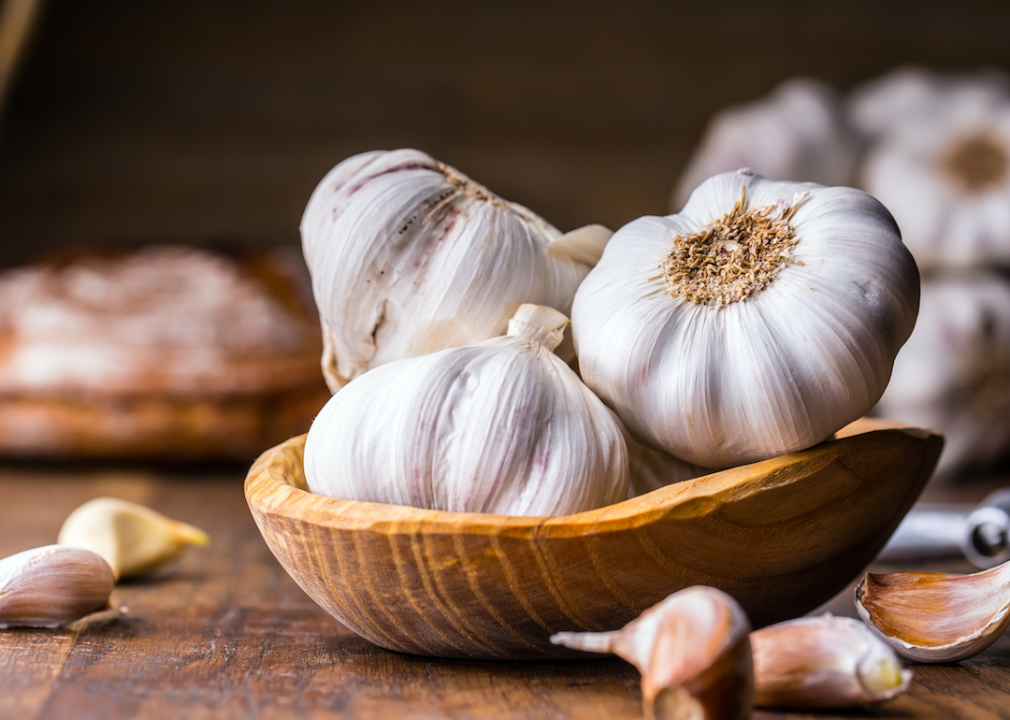
Marian Weyo // Shutterstock
Eat plenty of garlic
WebMD calls the bad-breath herb a “low-cal immunity-boosting superstar” and “elixir.” In addition to being delicious, garlic helps battle colds and toxins and is potent enough to counter bacteria and infection. It is most beneficial in its raw form.

Chetty Thomas // Shutterstock
Get plenty of exercise
In addition to improving mood and reducing stress, regular exercise is key in maintaining immune health. The CDC highlights its ability to lower the risk of chronic disease and recommends at least 150 minutes per week of moderate-intensity exercise and two days of strength training.
You may also like: Most and least healthy states in America

HQuality // Shutterstock
Enjoy the sauna
Exposing yourself to extremely hot, dry temperatures for short periods is a natural immune-boosting method. The sauna is your friend when considering the benefits of “environmental conditioning”—that is, forcing your body to adjust to extreme heat or cold.

My Ocean Production // Shutterstock
Get enough sleep
Failure to get sufficient sleep increases the likelihood of illness and weakens the body’s ability to recover (deprivation can reduce the circulation of white blood cells), according to the Mayo Clinic. Get the recommended amount (seven to 10 hours) to keep your immune system in top shape to fight infection.

Microgen // Shutterstock
Don’t ignore stress
Chronic stress produces a similar detrimental effect as sleep deprivation. While reducing and managing it may be particularly difficult right now, focusing on its reduction with the same emphasis as diet and sleep is important to avoid suppressing your immune response. Utilize key tools like exercise and deep-breathing.

Galina_Lya // Shutterstock
Have sex
This natural immune-boosting method can improve your enjoyment of your romantic partner (e.g., have fun, exercise, reduce stress) and support your overall health. WebMD mentions its effects on producing an antibody and lowering blood pressure and heart attack risk.
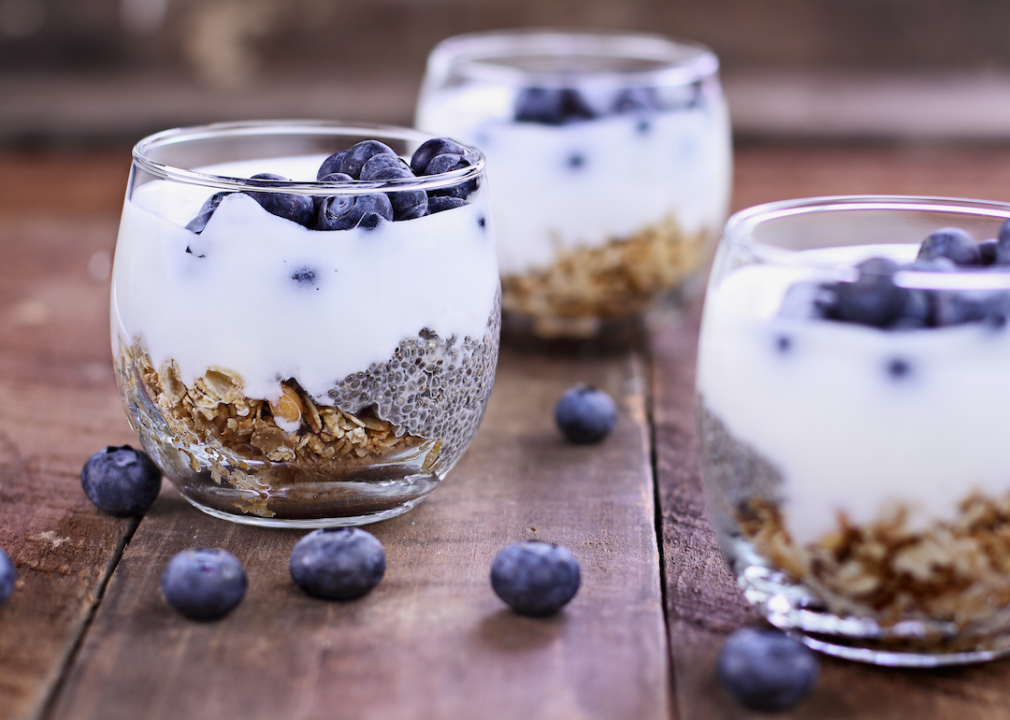
Stephanie Frey // Shutterstock
Take probiotics
Probiotics play an important role in balancing the gut biome and bacteria. Among their several health benefits (digestion, allergy reduction, heart health), these bacteria can support immune health. They appear naturally in sources like fermented dairy (yogurt) and food (kimchi, sourdough bread).
You may also like: Types of cancer on the rise
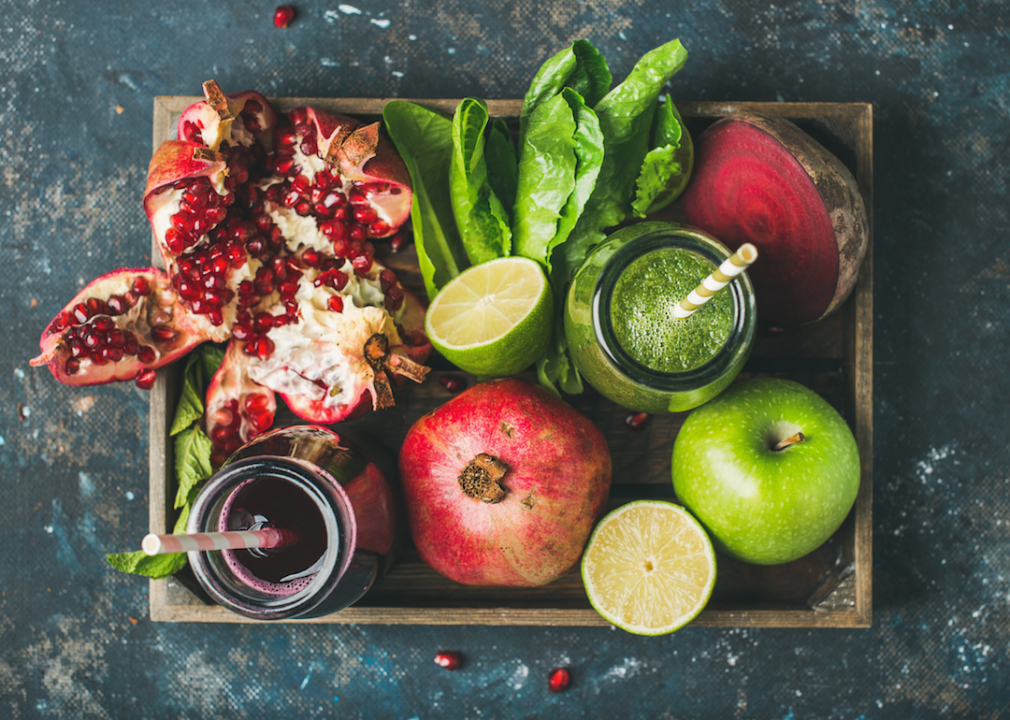
Foxys Forest Manufacture // Shutterstock
Antioxidant-rich foods
Fruits and vegetables are loaded with antioxidants—nutrients with numerous health benefits. WebMD says to favor colors like yellow, orange, red, blue, and purple when incorporating the three notable antioxidants: beta-carotene (in carrots, apricots, asparagus), vitamin C, and vitamin E (avocado, mangoes, spinach).

SFIO CRACHO // Shutterstock
Avoid nicotine and smoking
Nicotine is an immunosuppressive in cigarette smoke and e-cigarettes. Negative effects of smoking include inflammation, increased cortisol levels, decreased T cells’ response, and impaired immune response, making it more difficult to fight infection.

JaysonPhotography // Shutterstock
Drink alcohol in moderation
Alcohol disrupts the microbiome (previously mentioned regarding probiotics), thus throwing off the balance of bacteria and leading to inflammation that could ultimately damage the liver. You actually give your body more work to do when you drink excessively, forcing it to focus its response on detoxification—to the detriment of immune system function. Your best bet is to practice moderation.

Canva
Wash your hands frequently (and thoroughly!)
Thorough handwashing with soap and water is an immediate preventative measure for the spread of bacteria and viruses. Influenza and gastrointestinal infections are just two communicable examples from contaminated hands.

FotoHelin // Shutterstock
Boost vitamin D in the body
The body can produce vitamin D (unlike C) by spending time in the sun, though you can maximize intake through supplements and food sources like mushrooms, eggs, and cheese (though it can be difficult to get enough just from foods). Vitamin D helps to reduce virus and bacteria spread.
You may also like: 40 most nutritious fruits and vegetables, according to experts
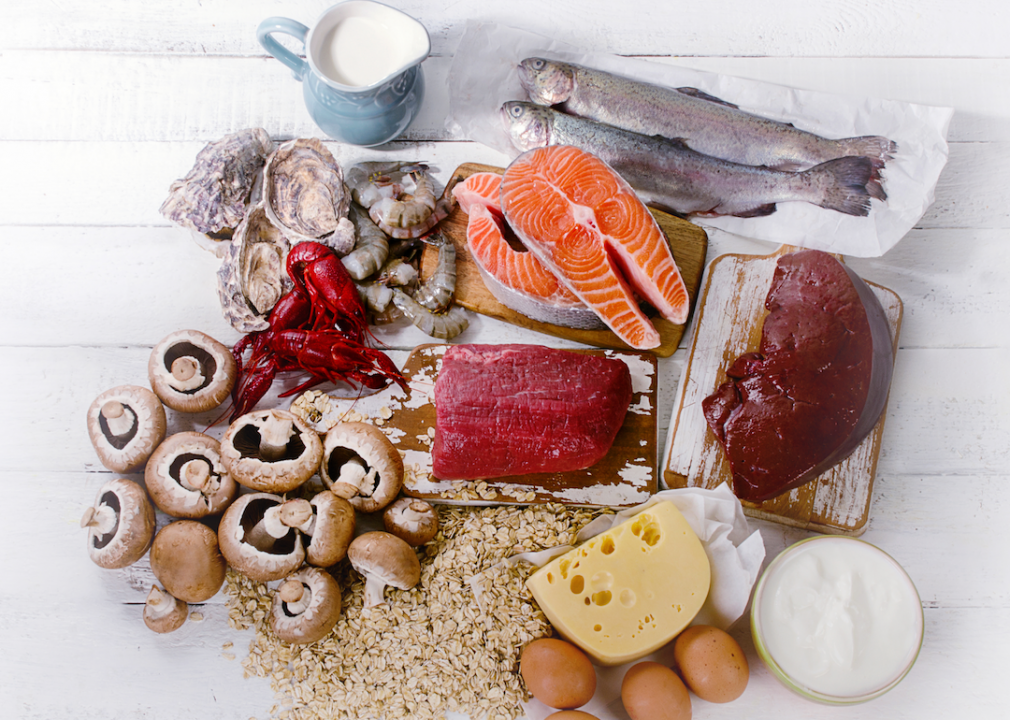
bitt24 // Shutterstock
Maintain high levels of B12
B12 is essential to a healthy immune system, as well as a healthy brain, robust red blood cell count, and DNA maintenance. Decreased levels of B12 in the body can severely limit immune responses. Foods naturally high in B12 include meat, milk products, poultry, and fish, as well as nutritional yeast, fortified cereals, nori seaweed, and tempeh.
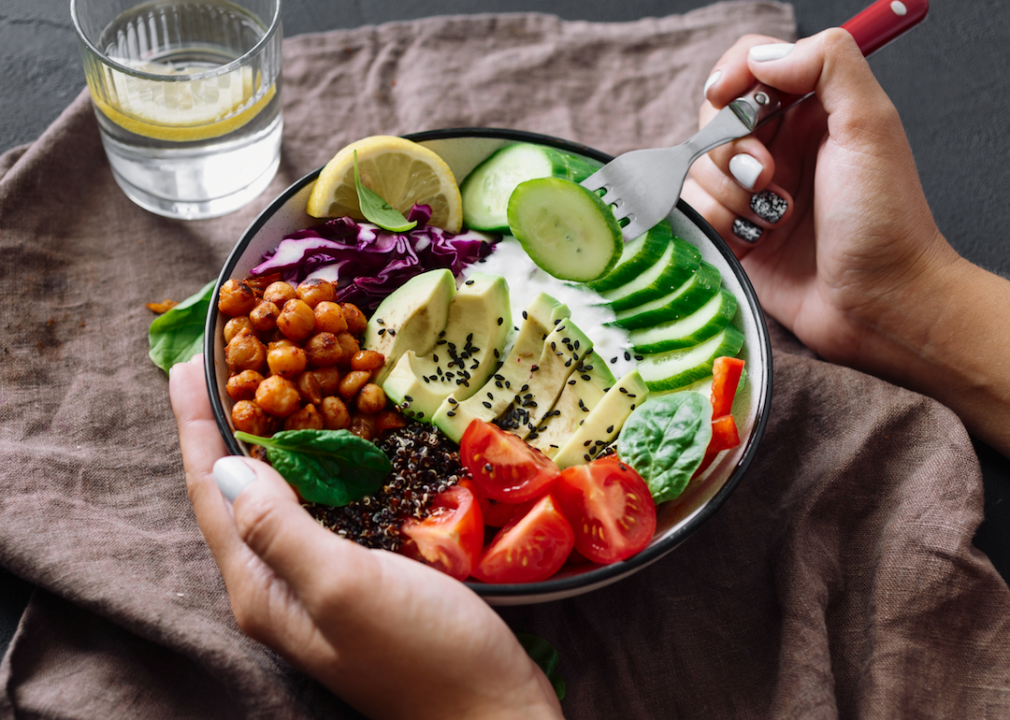
Anna Kucher // Shutterstock
Eat more plants
Whether it’s carrots for beta carotene or broccoli for vitamin C, plants are filled with nutrition that helps to support a healthy immune system. To maximize the nutritional value of the plants you cook, try to avoid boiling the foods. Best bets are steaming, grilling, or roasting.
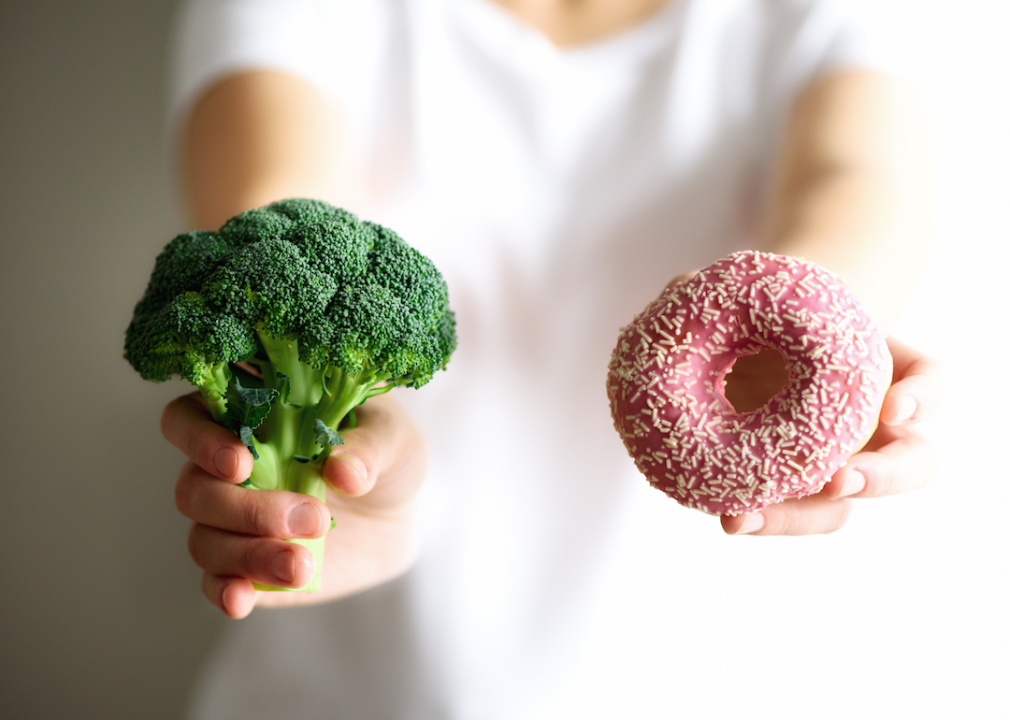
j.chizhe // Shutterstock
Limit your sugar intake
We all know sugar isn’t good for us, but sugar also inhibits our immune-system response to bacteria for several hours following excessive consumption. To prevent an overload of sugar, stay away from syrupy sodas and processed foods in general. Quick tip: If you see a food item marked as fat-free or low-fat, there’s a high probability it’s loaded with sugar to make up for the lack in flavor.

fizkes // Shutterstock
Stay connected
Social interactions—even virtual—provide much-needed boosts to our immune systems. A 2016 study from researchers at the University of Virginia found socializing can actually activate the immune system—and that conversely, a desire to socialize decreases when the immune system is compromised.

gpointstudio // Shutterstock
Avoid processed foods
Processed foods are loaded with calories, which in turn can increase inflammation in the body, making it more difficult to fight off threats. These types of foods also lack nutritional value; in other words, if you fill up on processed foods you may not be consuming the foods that can help boost your immune system, like fresh fruits and vegetables, and lean forms of protein.
You may also like: Biggest sources of stress for today’s adults

Potential Filmmaker // Shutterstock
Maintain a healthy weight
Excess body fat, which increases inflammation in the body, negatively affects the immune system. A 2010 study by Australian researchers published in the Journal of Clinical Endocrinology Metabolism discovered that losing even 10 pounds could help people struggling with obesity balance their immune system.

Dean Drobot // Shutterstock
Get fresh air
Indoor air, germs included, gets cycled through air vents, so outdoor air is cleaner. If you live in a home without a yard, it may be harder to get that breath of fresh air. Even cracking a window when you’re stuck inside can help circulate fresh air within your environment and give your immune system a slight rest.

Ivanko80 // Shutterstock
Replenish electrolytes
Electrolytes is a buzzword frequently used in marketing sport and wellness drinks, but that doesn’t mean they aren’t beneficial. Calcium, potassium, magnesium, and sodium are all common electrolytes, which are minerals responsible for regulating the balance of fluids in the human body. Magnesium in particular can boost the immune system. When people sweat or become otherwise dehydrated, they lose electrolytes vital to a high-functioning body. Make sure to pay attention to the nutritional labels of electrolyte drinks, as these products can sometimes have a great deal of added sugar.
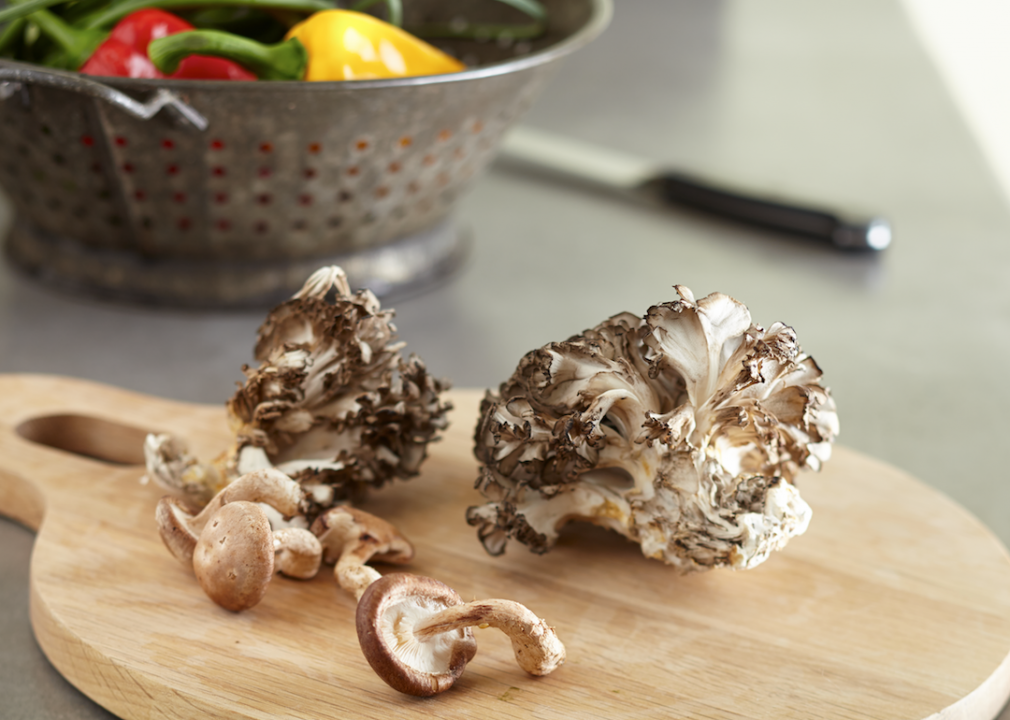
Laura Moss Photography // Shutterstock
Eat more mushrooms
Various types of mushrooms have been touted for their medicinal properties for centuries—and it’s more than an old wives’ tale. Edible mushrooms are full of protein, antioxidants, and vitamins and minerals, and there is evidence that certain types of mushrooms, such as turkey tail and shiitake (among others), can support and strengthen the immune system. Beware of products that market magical cures from mushrooms: They are likely too good to be true.
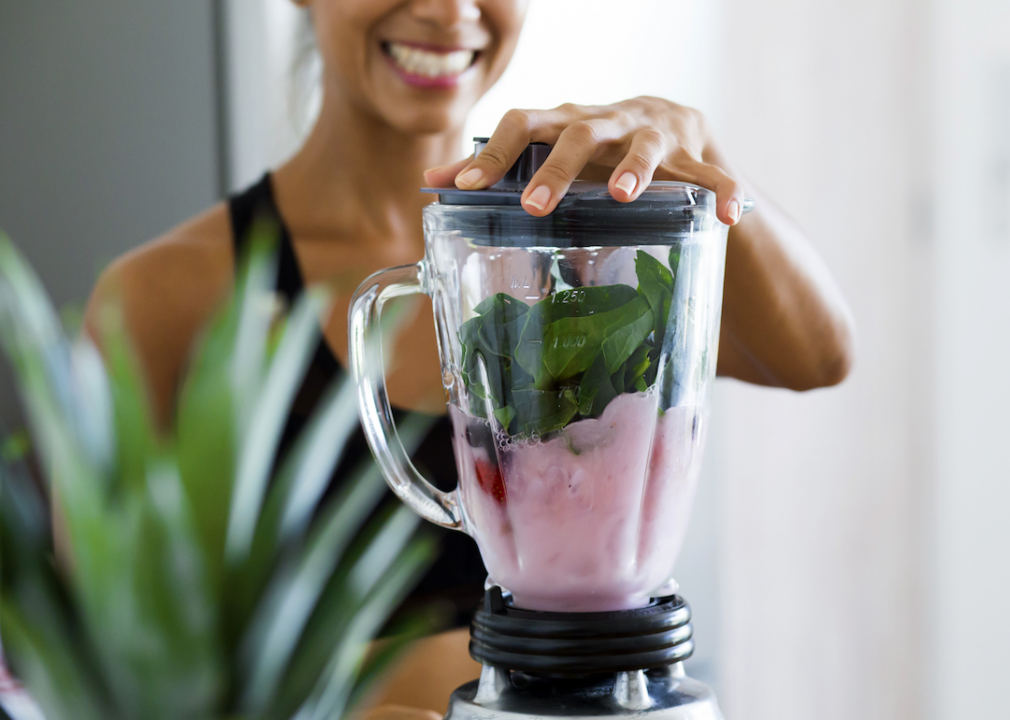
Luna Vandoorne // Shutterstock
Increase protein intake
A diet without enough protein could lead to a weaker immune system, making it harder for the body to fight off both bacterial and viral infections. The amino acids—aka the building blocks of life—that make up proteins stick around after digestion and help repair body tissue among carrying out countless other bodily functions.
